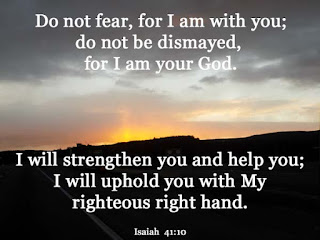I recall that day with deep regret. And pain.
You, too, have
regrets. You remember suffering the pain of them.
But did you
know there’s good pain and bad pain? Did you know suffering the good kind can be
helpful?
Dr. Henry Cloud explains the difference between bad and good pain—between destructive and
valuable pain.
We can suffer
bad pain for various reasons. One is the pain someone else inflicts upon us.
But there’s
another pain that we bring upon ourselves because of our own “character faults,”
Dr. Cloud says, the pain that comes from “repeating old patterns and avoiding the
pain it would take to change them.”
Dr. Cloud
says we need to recognize the pain we bring upon ourselves is “a wake-up call,”
otherwise we are wasting that pain.
Wasting our
pain. Think about that. Are we wasting our pain?
For several
decades now, I’ve cherished five little words Chuck Swindoll spoke on his radio
program. The words changed me. He said, “GOD DOES NOT WASTE YOUR SUFFERING.”
So, if God
doesn’t want to waste our pain and suffering, we’d better not fight against Him
by choosing to waste our pain!
Dr. Cloud
says that wasted pain “is the pain we go through to avoid the good pain of
growth that comes from pushing through. It is the wasted pain we encounter as
we try to avoid grief and the true hurt that needs to be worked through.”
With God’s
help, our job is to “face the growth steps [we] need to keep from repeating
[our] mistakes.” This is how good pain can help us mature.
“We all have
coping mechanisms that cover up pain, help us deal with fear . . . and help us
hold it all together,” writes Dr. Cloud. “Trials and suffering push those
mechanisms past the breaking point so we find out where we need to grow. Then
true spiritual growth begins at deeper levels. . . . Righteousness and
character take the place of coping.
“This kind of
suffering is good,” he continues. “It breaks down the ‘weak muscle’ of the soul
and replaces it with stronger muscle. In this suffering, the prize we win is
character—a very valuable prize indeed.
“Suffering is
the path Jesus modeled for us, and he modeled how to do it right. He went
through it all with obedience and without sin. This is the difference between
those who suffer to a good end and those who suffer to no good at all.” (Click
on Dr. Cloud’s article, “When Suffering Helps and When Suffering Hurts.”)
The good kinds
of pain and suffering lead us to ask ourselves (a) what is God trying to teach me,
(b) what God is trying to help me do now, and (c) will I cooperate with Him?
James 1:5
says “If any of you lacks wisdom, let him ask of God, who gives to all
liberally and without reproach, and it will be given to him.”
The Nelson Study
Bible (NKJV Version) says this about James 1:5 “The wisdom God gives is not
necessarily information on how to get out of trouble but rather insight on how
to learn from one’s difficulties. . . . It is not more information about how to
avoid times of testing but instead a new perspective on trials.”
So there I
stood on that blistering hot afternoon in the middle of nowhere in South
America, feeling like an utter failure as a wife, mother, and child of God.
And I had
choices to make.
- Would I recognize this as a wake-up call?
- Would I embrace the pain and regret and suffering and would I learn from the experience?
- Would I push through? Would I climb up out of this low point with a change of character? And a deeper, more mature faith?
- Were the battle and perseverance part of the training for what God planned for my future?
- Would
I choose to mature as a person?
- Would I let
the experience bring me into a more intimate relationship with God?
Often it’s difficult to see any good in our failures and suffering, but God asks us to not waste those times. He holds out His hand and says, “Do not fear, for I am with you; do not be dismayed, for I am your God. I will strengthen you and help you; I will uphold you with my righteous right hand” (Isaiah 41:10).
Today He’s offering His hand to you.
It’s a strong yet gentle hand.
Go ahead. Grab ahold
of it.








